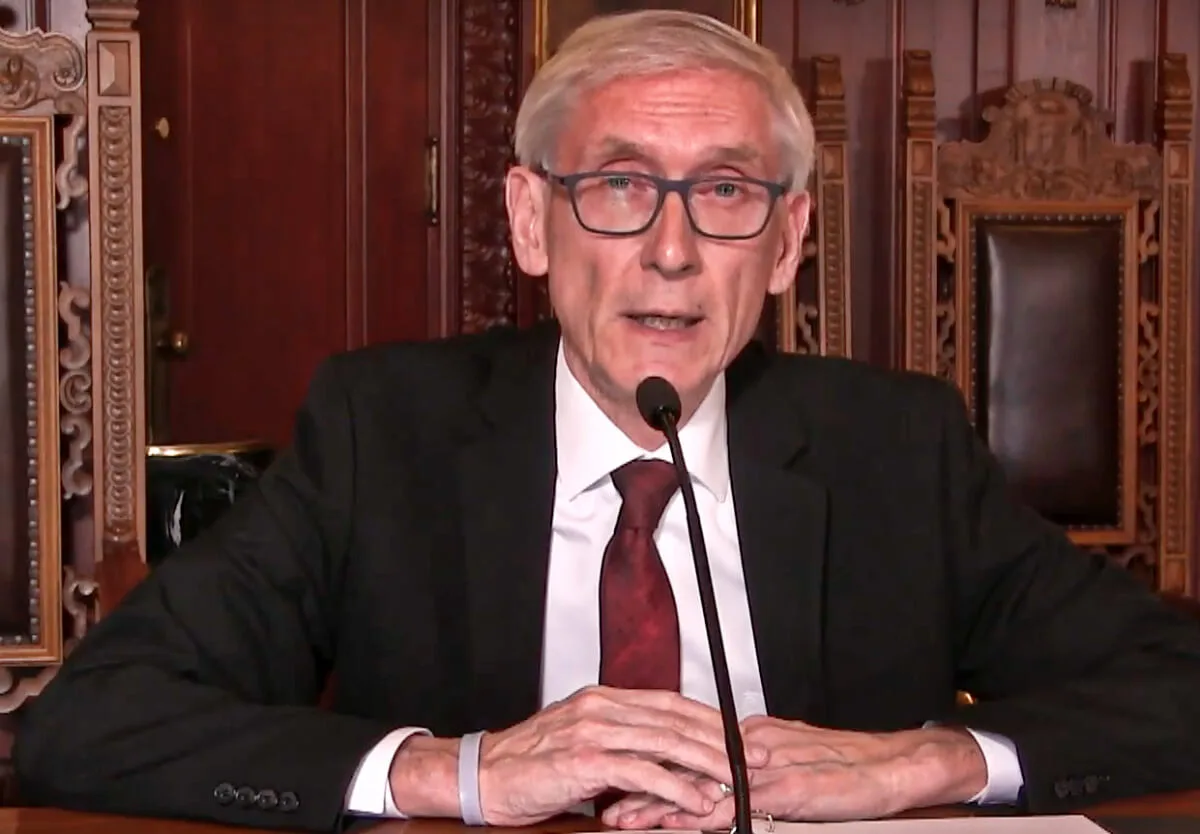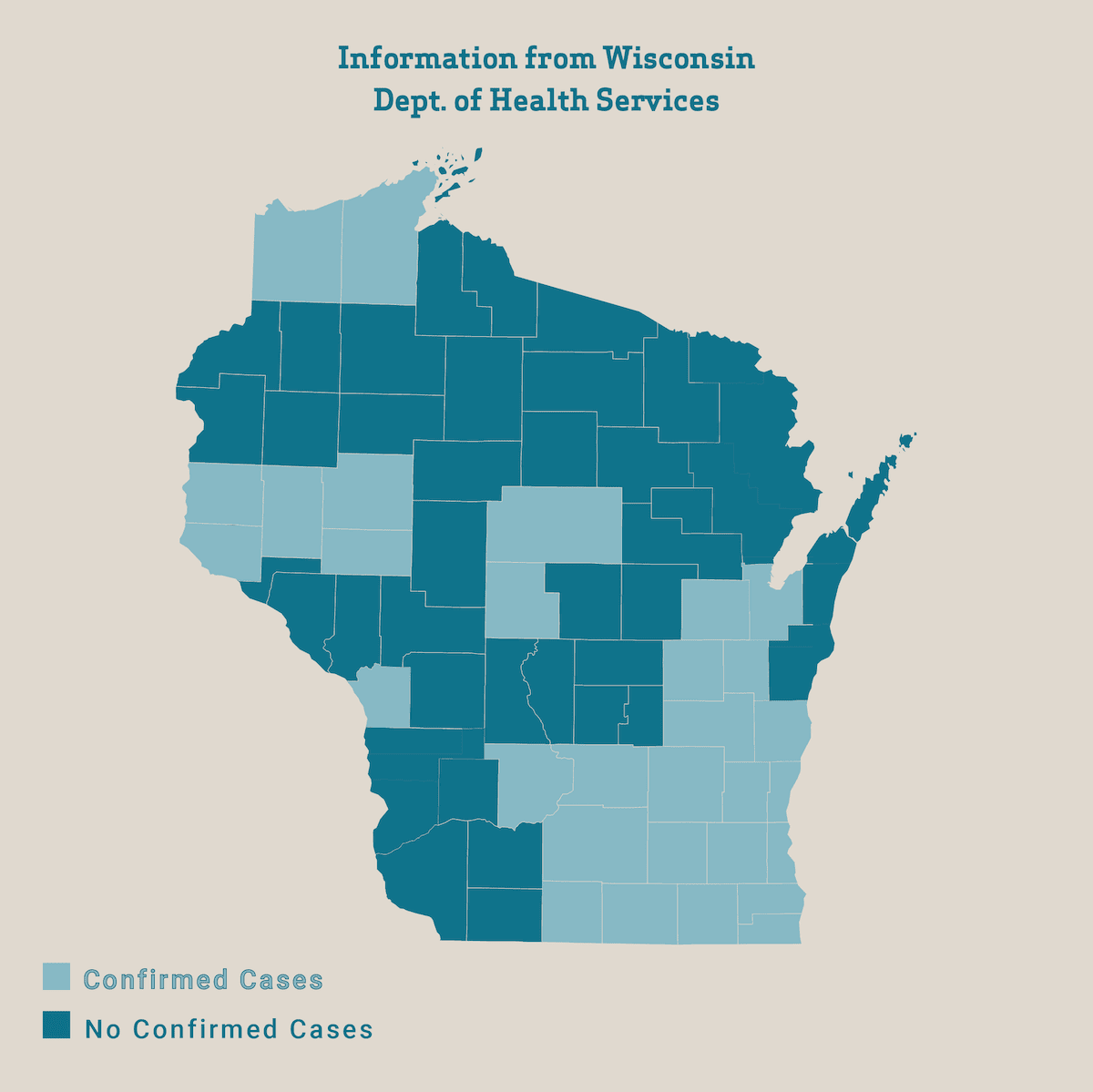
#image_title
Violations could result in jail time or fine, and make more people very sick
A statewide “Safer at Home” order will go into effect at 8 a.m. Wednesday and last through 8 a.m. April 24, Gov. Tony Evers announced Tuesday morning.
The order comes as the state Department of Health Services confirms 457 positive cases and five deaths from COVID-19, and amid rising concerns as governors in other states including Michigan, Illinois, Ohio, and California have implemented similar declarations.
Under the order, state residents are required to stay in their homes unless they are going out for necessities such as groceries, medicine, pet food, or health care.
Andrea Palm, secretary of the state DHS, said without issuing the “safer at home” order public health officials estimated roughly 22,000 people in Wisconsin would have contracted the virus and between 440 and 1,5000 people would have died from it by April 8.
In announcing the order, the governor said “folks need to start taking this seriously.” He said public health officials and local leaders had urged him to take an “all-hands-on-deck approach.”
“That’s something that I didn’t think we needed to do, and it’s not something I wanted to do,” Evers said Tuesday during a call with reporters. “But I’ve said all along in this process that this is a fluid process”
Certain businesses deemed essential will be allowed to stay open. Those businesses include, per the governor’s order:
- Health care operations, including home health workers;
- Critical infrastructure;
- Businesses that provide food, shelter, and social services, and other necessities of life for economically disadvantaged or otherwise vulnerable individuals;
- Fresh and non-perishable food retailers, including convenience stores, grocery stores, farmers’ markets, and food banks;
- Businesses that ship or deliver groceries, food and goods directly to residences;
- Pharmacies, health care supply stores and health care facilities;
- Child care facilities, with some limitations;
- Gas stations and auto repair facilities;
- Banks;
- Laundry businesses, dry cleaners and services necessary for maintaining the safety, sanitation and essential operation of a residence, including garbage collection;
- Hardware stores, plumbers, and electricians;
- Educational institutions, for the purposes of facilitating distance learning;
- Roles required for any business to maintain minimum basic operations, which includes security, and payroll; and
- Law and safety, and essential government functions will continue under the recommended action.
The full order includes a broad list of essential business types with fairly detailed descriptions. Businesses unsure about whether they fit into the essential business category should contact the Wisconsin Economic Development Corp.
Funerals and weddings will still be allowed, but will be limited to fewer than ten people, according to the order. Restaurants will be able to continue serving takeout only, as they have been since last week.
All gatherings must also adhere to “social distancing requirements,” defined as keeping a minimum distance of six feet from other people, not shaking hands, washing your hands “as frequently as possible,” and following all publicly issued guidance from both the state health department and the Centers for Disease Control.
Violation of the order could result in up to 30 days in jail, a $250 fine, or both. Enforcement will be left up to local law agencies. People will not have to carry any proof of essential travel.

Evers announced Monday that he would issue the order, just days after saying he did not anticipate having to enact a stay-at-home policy.
Evers has not said if any specific statistics caused him to flip his position on a stay-at-home order, but traffic data indicates most people were still out and about, despite a significant decrease in car volume.
Sign Up For Daily Wisconsin Coronavirus News Here.
Between Madison and Milwaukee and Milwaukee and the Illinois state line, average daily traffic volume fell by as much as 27 percent in the days after Evers first declared a health emergency, according to Department of Transportation data obtained by UpNorthNews.
More than 101,000 people had filed unemployment claims in the state since March 15 as of Tuesday, according to the Department of Workforce Development.

New Biden rules deliver automatic cash refunds for canceled flights, ban surprise fees
In the aftermath of a canceled or delayed flight, there’s nothing less appealing than spending hours on the phone waiting to speak with an airline...

One year on the Wienermobile: The life of a Wisconsin hotdogger
20,000+ miles. 16 states. 40+ cities. 12 months. Hotdogger Samantha Benish has been hard at work since graduating from the University of...

Biden makes 4 million more workers eligible for overtime pay
The Biden administration announced a new rule Tuesday to expand overtime pay for around 4 million lower-paid salaried employees nationwide. The...

‘Radical’ Republican proposals threaten bipartisan farm bill, USDA Secretary says
In an appearance before the North American Agricultural Journalists last week, United States Department of Agriculture (USDA) Secretary Tom Vilsack...




